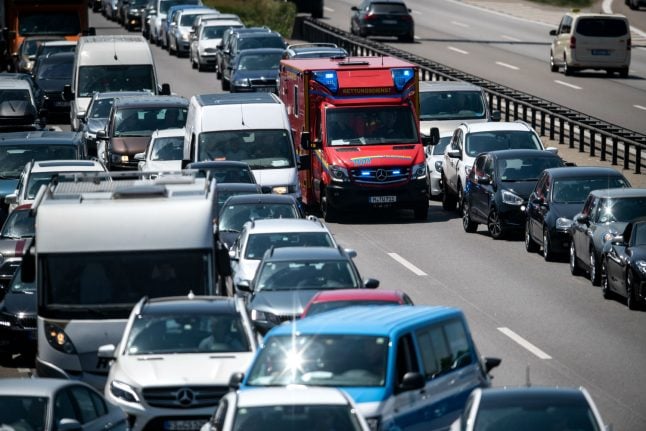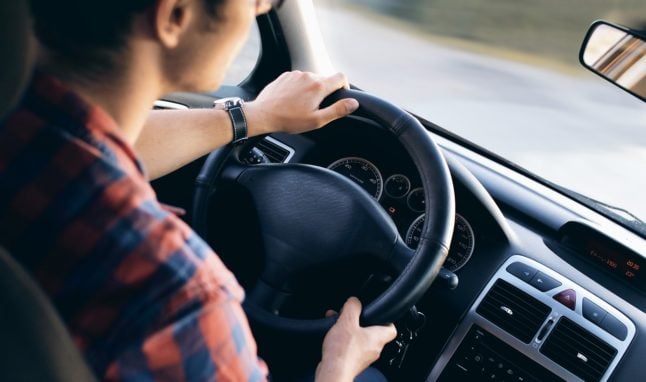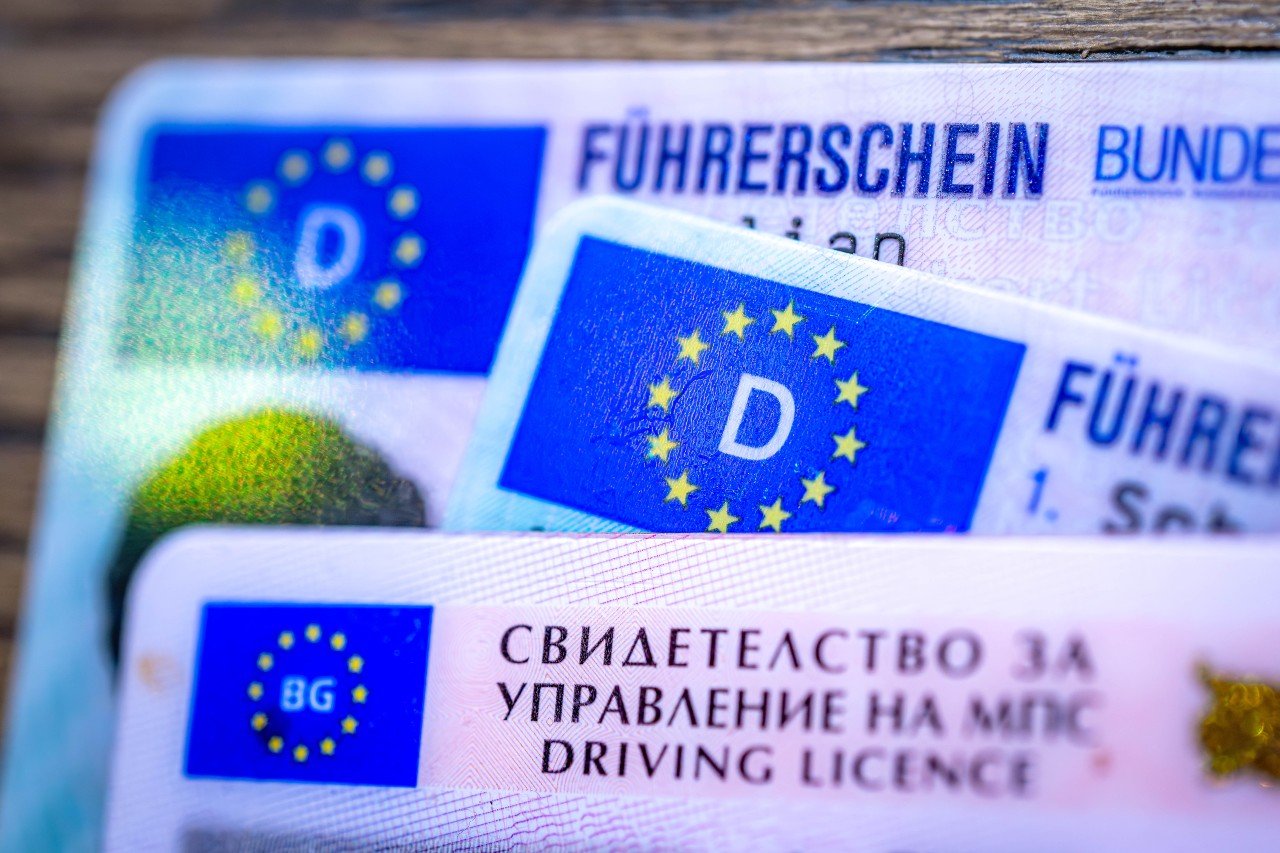Drivers in Germany who delay the work of the emergency services by blocking rescue lanes face a fine of up to €320 – and a month's driving ban, if proposals from Transport Minister Andreas Scheuer get the green light.
Motorists already face penalties for failing to form an emergency corridor to allow ambulances and other emergency vehicles to pass them on the road.
But Scheuer wants to introduce harsher penalties for drivers who flout road rules – like this one – as part of a reform of traffic regulations.
Double parking, parking on footpaths and cycle paths will see drivers hit with an increased fine of €100. So far the fine has been €15.
READ ALSO: Germany tightens road laws in response to reckless and selfish drivers
Meanwhile, vehicles are currently able to stop on the protective strip at the side of some roads – the part usually used by cyclists which is separated from traffic by a dashed line – for a maximum of three minutes.
However, this will no longer be permitted under the plans, and drivers could face penalties of up to €100 if caught stopping there for any length of time.
There is “a lot to be done to make our roads even safer, more climate-friendly and fairer,” Scheuer told German daily Bild. For the mobility of the future, changes need to be made now, he said.
The Bundestag and Bundesrat must approve the reform before it goes ahead. If the proposals get the green light after a vote, they will come into force this year.
Car-sharing and bus lane changes
The plans also include changes to bus lanes in cities: It is expected that drivers carrying at least three passengers will be allowed to use the lanes. Electric scooters will also be able to use bus lines.
There will also be other advantages for car-sharers in order to promote this form of mobility, such as designated parking spaces.
The responsible road traffic authorities in each state should in future also be able to highlight parking areas for electrically powered vehicles by marking them on roads.
The draft also lays out plans to introduce a green turning arrow for cyclists at traffic lights to increase safety.
Meanwhile, motorists overtaking pedestrians, cyclists or scooters will have to ensure there is a minimum distance of 1.5 metres in urban areas, and 2 metres outside built up areas.
Scheuer had announced in May that he would “check and adjust” a number of rules to make other forms of transport, like cycling, more favourable.
Vocabulary
Emergency corridor – (die) Rettungsgasse
Protective strip – (der) Schutzstreifen
Traffic offenders – (die) Verkehrssünder
Bus lanes – (die) Busspuren
Traffic regulations – (die) Straßenverkehrsordnung
We're aiming to help our readers improve their German by translating vocabulary from some of our news stories. Did you find this article useful? Do you have any suggestions? Let us know.




 Please whitelist us to continue reading.
Please whitelist us to continue reading.
Member comments